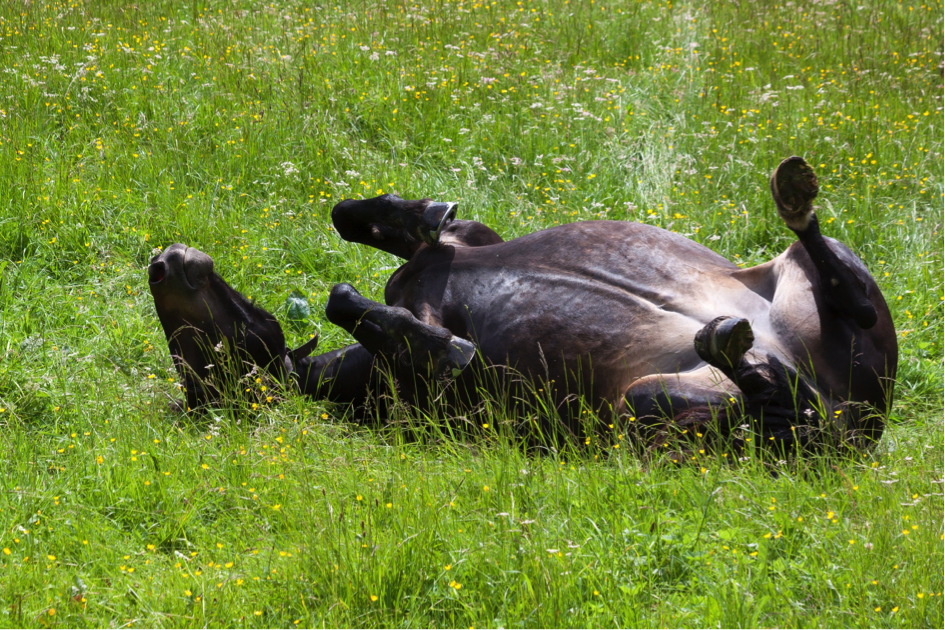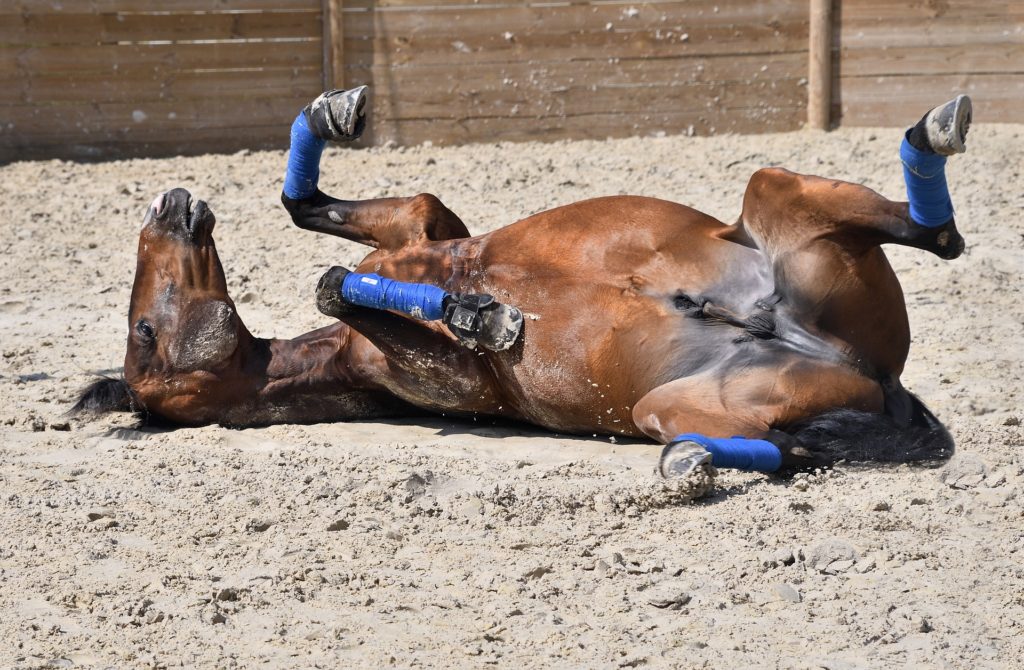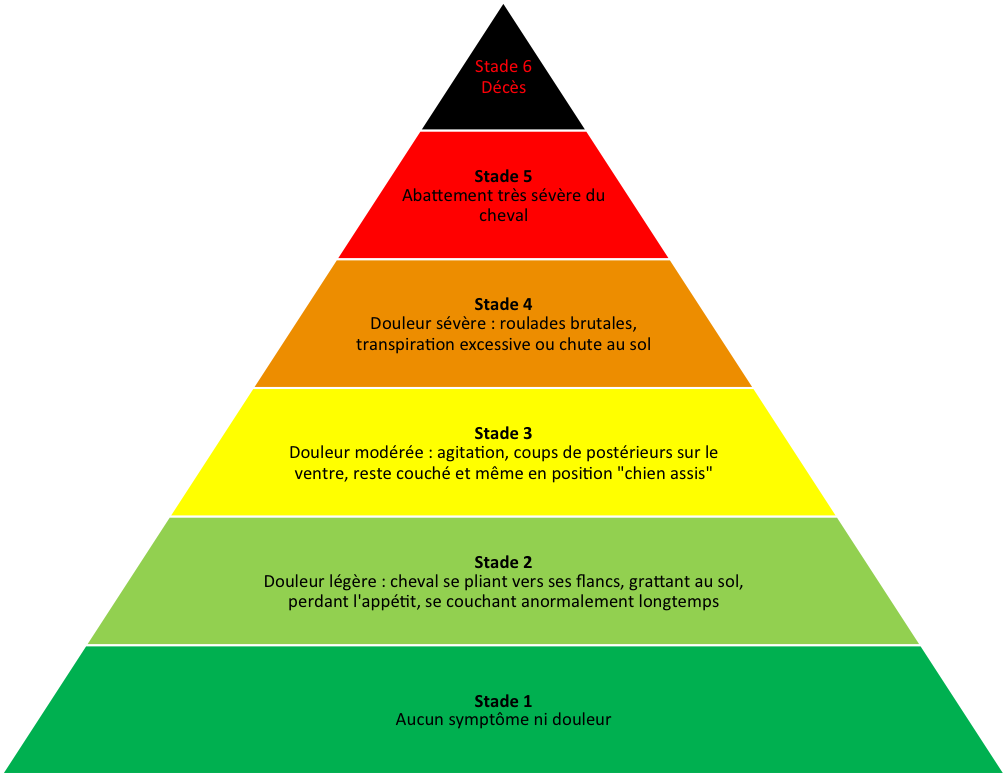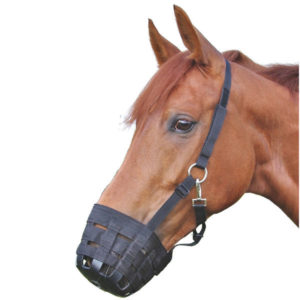vendredi, 25 octobre, 2019
1ère cause de décès chez les chevaux, les coliques inquiètent les propriétaires et les centres équestres. Elles comptent parmi les troubles les plus fréquents et les plus graves chez les équidés. Elles constituent le premier motif d’appel en urgence du vétérinaire et la première cause de mortalité du cheval. Dans cet article, nous vous expliquonsce que sont les coliques, comment les éviter et comment réagir face à un cheval en colique.

Bien connue du grand public pour définir la diarrhée chez l’homme, la colique du cheval n’a de commun que le nom !
Les coliques équines désignent l’ensemble des douleurs abdominales chez le cheval. On parle donc du syndrome de la colique et non de maladie. Elles peuvent survenir en cas d’anxiété, d’une ingestion trop rapide des aliments ou d’un parasitisme. Un changement de régime alimentaire ou un excès de légumineuse peuvent aussi être à l’origine des coliques.
Malgré sa robustesse, le cheval possède un appareil digestif complexe et fragile. Cela est lié à la présence de nombreuses terminaisons nerveuses au niveau des intestins qui réagissent à la moindre anormalité. Le système digestif est d’autant plus fragile que l’estomac du cheval est très petit et que son intestin grêle est très long, d’où l’importance de fractionner les rations alimentaires du cheval en plusieurs repas par jour.
Si le syndrome de la colique est aussi dangereux c’est que contrairement à l’homme, le cheval est incapable de vomir pour évacuer l’excès de nourriture (quand son estomac est trop plein ou que sa digestion est bloquée).
Il existe différents stades du syndrome. Sachez cependant qu’une grande partie des coliques se résolvent dans les 24h qui suivent les premiers symptômes. D’où l’intérêt de savoir les détecter à temps et agir efficacement !
Une colique chez le cheval se manifeste de différentes manières :

Et la fréquence cardiaque dans tout ça ?
Si votre cheval souffre de coliques, sa fréquence cardiaque va augmenter. Ainsi, connaître la fréquence cardiaque de votre cheval au repos est un élément de pronostic essentiel pour suivre l’évolution de la pathologie. En cas de colique, une fréquence cardiaque supérieure à 100 battements par minute sera révélateur d’un degré de gravité important.
Un cheval qui n’a pas de température mais dont la fréquence cardiaque est très élevée alors qu’il est au repos, devra être vu rapidement par un vétérinaire. Cette information lui sera en effet très utile pour avoir une idée de l’état d’urgence.

Chaque animal réagit à sa façon et il est rare qu’un cheval présente l’intégralité de ces symptômes. Dès le premier signe de malaise ou de douleur, il faut appeler le vétérinaire. C’est souvent bénin, mais ça peut dégénérer et mérite donc d’être pris au sérieux.
Tout d’abord, il est important d’évaluer l’état du cheval. S’il semble peu abattu mais commence à se coucher assez longtemps ou à se regarder les flancs, vous pouvez aller faire marcher votre cheval et lui couper l’accès à toute nourriture.
Si quelqu’un est habilité, il peut injecter un antalgique simple comme la noramidopyrine (Calmagine) par voie intraveineuse.
En cas de doute sur la gravité de sa colique, ou si l’état de votre cheval reste préoccupant, il est important d’appeler d’urgence le vétérinaire pour éviter toute aggravation ou douleurs !
Première urgence vétérinaire équine 🚨, les coliques peuvent être dues à un bouchon qui s’est formé et a du mal à s’évacuer. Le cheval peut aussi souffrir d’une torsion du gros colon ou bien d’autres raisons que seul un vétérinaire saura traiter. Dans certains cas les plus graves, une chirurgie peut être nécessaire.
Le retour des crottins est souvent le signe du début du rétablissement du transit, mais il faut tout de même rester vigilant.

Voici quelques conseils :

En vente sur lepaturon.com
Nous espérons que cet article vous a plu !
A très vite,
L’équipe Seaver
Sources :
(2) Thèse de Doctorat Vétérinaire 2006 Laure WALTER (Vétérinaire de Maisons-Alfort)
(3) Thèse de Doctorat Vétérinaire 2008 Anne SAVOIE (École vétérinaire de Lyon)